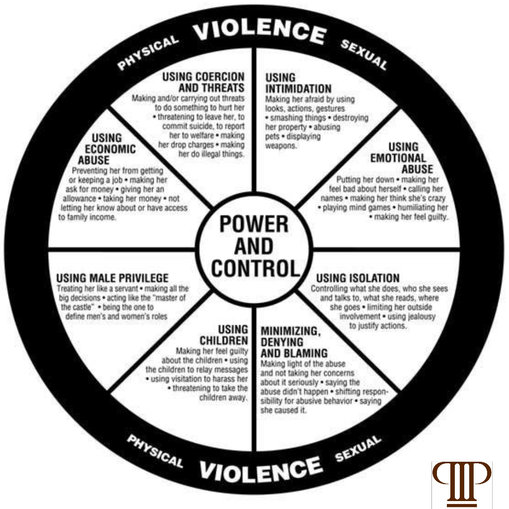|
One of the most pervasive questions I get is whether a party can record conversations either in person or on the phone. Here is a short breakdown of applicable laws and cases in Texas.
The General Rules: No matter the form of communication, the general rule is - assuming you aren't doing it for an illegal reason (harassment, etc.) - if you are recording a communication between yourself and another person, and the other person knows you are recording it, you are probably alright in recording it. If you are recording a conversation with another person who DOES NOT know you are recording it, you MAY (and I stress MAY) be ok to record it under certain circumstances. BUT, if you secretly record a conversation between two other people without their knowledge, that is classic wiretapping and you most likely will get in very big trouble. There are many exceptions and precautions to these general rules! Summary of statute(s): An individual who is a party to either an in-person conversation or electronic communication, or who has the consent of one of the parties to the communication, can lawfully record it, unless the person is doing so for the purpose of committing a criminal or tortious act. A person also can lawfully record electronic communications that are readily accessible to the general public. Tex. Penal Code Ann. § 16.02 (Vernon 2011). In-person conversations: The consent of at least one party to a conversation is required to record an “oral communication,” which is defined as “any oral communication uttered by a person exhibiting an expectation that the communication is not subject to interception under circumstances justifying that expectation.” Tex. Code Crim. Proc. Ann. art. 18.20. Thus, an ex-wife can record a conversation with her ex-husband at a Starbucks because she does not need consent to record conversations in public where there is no reasonable expectation of privacy. However if she records the same conversation in the privacy of the home, where privacy is usually expected, then she should get the ex-spouses permission before recording or she may be breaking the law. Electronic communications: Things can get VERY SERIOUS when recording electronic communications because Federal Wiretapping Laws may come into play. The consent of at least one party to any telephone communication is required to record it. And because the provision of the statute dealing with wireless communications applies to “a transfer of signs, signals, writing, images, sounds, data, or intelligence of any nature,” consent likewise is required to disclose the contents of text messages sent between wireless devices. Id. The burden will be on YOU to prove that you obtained informed consent prior to recording. Either have the consent given verbally and plainly at the beginning of the recording and/or get it in writing. Hidden cameras: It is a felony to photograph or record a person without the person’s consent in a public place “with the intent to arouse or gratify the sexual desire of any person,” or in a bathroom or private dressing room “with the intent to invade the privacy of the person, or arouse or gratify the sexual desire of any person,” and to disclose any images obtained by these means. Tex. Penal Code Ann. § 21.15. The law, however, does not criminalize the use of recording devices for other purposes in areas to which the public has access or there is no reasonable expectation of privacy (i.e., filming conversations on public streets or a hotel lobby). The state’s highest court for criminal cases recently held that the statutory prohibition on photographing or videotaping a person in public without that person’s consent with the intent to arouse or gratify a sexual desire did not implicate, much less violate, a defendant’s free-speech rights because the statute was not a regulation of speech or the contents of a visual image but rather a regulation of the photographer’s or videographer’s intent in creating the image. Ex parte Nyabwa, 366 S.W.3d 710 (Tex. Crim. App. 2012). Criminal penalties: Illegally recording an in-person conversation or electronic communication is a felony offense. Tex. Penal Code Ann. § 16.02. Civil suits: Anyone whose wire, oral or electronic communication has been recorded or disclosed in violation of the law can bring a civil suit to recover $10,000 for each occurrence, actual damages in excess of $10,000, punitive damages, attorney’s fees and court costs. Under the statute, an aggrieved person also is entitled to an injunction prohibiting further unlawful interception or disclosure. Tex. Civ. Prac. & Rem. Code Ann. § 123.004. Disclosing recordings: Not only can you get in serious trouble for illegally recording a communication, if you then show the illegal recordings to anyone, you may be breaking additional laws. Trying to get your attorney to listen to, watch or hold on to such illegal recordings counts. And then if your attorney tries to use illegal recordings in court, you BOTH can be violating the law. Disclosing the contents of a wire, oral or electronic communication obtained through illegal recording is a felony. Tex. Penal Code Ann. § 16.02 The bottom line The bottom line is that if you plan to record conversations without informing everyone that you are recording them, then make sure you follow these guidelines: 1. There are no circumstances when you can record a person for an illegal purpose such as to harass them or for sexual gratification. 2. At least one party to the conversations needs to be aware they are being recorded; 3. Do not record someone when they should reasonably expect privacy (such as in their home); 4. If you have an illegal recording in your possession, do not try to show it to anyone. It is best to consult with a lawyer before attempting to do any sort of fact gathering on your case. If you have any further questions about taping phone calls, recording conversations or taking videos in relation to your family law case in Texas you may schedule a consultation with an attorney on our website at thepalmerlawfirm.com.
5 Comments
In this video, family law attorney Sean Palmer explains the key Texas Supreme Court case on which Texas judges rely whenever they are looking at how to review the best interests of a child. The case is Holley v. Adams, a 1976 case that for the first time, gathered and listed the basic issues that may be presented in court when arguing a case involving the “best interest” of a child. You can learn more at our video about the Fit Parent Presumption. Mr. Palmer also explains that these factors alone may not be enough, especially in close custody cases and what litigants should do to improve their chances of winning a Texas custody case. The Palmer Law Firm 303 E. Main Street, Suite 230 League City, Texas 77573 (832) 819-3529 thepalmerlawfirm.com fb: @thepalmerlawfirm t: @palmerlawfirm Domestic violence and abuse stems from a desire to gain and maintain power and control over an intimate partner. Abusive people believe they have the right to control and restrict their partners, and they may enjoy the feeling that exerting power gives them. They often believe their own feelings and needs should be the priority in their relationships, so they use abusive tactics to dismantle equality and make their partners feel less valuable and deserving of respect in the relationship.
No matter why it happens, abuse is not okay, and it’s never justified. Abuse is a learned behavior. Sometimes people see it in their own families. Other times they learn it from friends or popular culture. However, abuse is a choice, and it’s not one that anyone has to make. Many people who experience abuse growing up decide not to use those negative and hurtful behaviors in their relationships. Additionally, drug or alcohol addiction can often escalate abuse, but these issues do not cause abuse. Who Can Be in an Abusive Relationship? Anyone can be abusive relationship, and anyone can be the victim of abuse. It happens regardless of gender, age, sexual orientation, race or economic background. If you are being abused by your partner, you may feel confused, afraid, angry and/or trapped. All of these emotions are normal responses to abuse. You might also blame yourself for what is happening, but you are never responsible for your partner’s abusive actions. Being abusive is a choice; it’s a strategic behavior the abusive person uses to create their desired power dynamic. Regardless of the circumstances of the relationship or the pasts of either partner, no one ever deserves to be abused. Resources If you need immediate help, dial 911. You may also call the National Domestic Violence Hotline at 1-800-787-3224. If you live in Harris or Galveston Counties and need help obtaining a protective order, divorce or any other family law assistance, you can get more information by calling The Palmer Law Firm at (832) 819-3529. The Palmer Law Firm 303 E. Main St., Suite 230 League City, Texas 77573 (832) 819-3529 thepalmerlawfirm.com FB: @thepalmerlawfirm twitter: @palmerlawfirm Finding a divorce lawyer can be a daunting task. For many, divorce is their first experience with the legal system, aside from a traffic ticket or two. It can be tempting to look for a lawyer who markets himself as aggressive. Here are some reasons to think twice.
1. Aggressive does not mean effective An aggressive attorney often makes few friends in the courthouse. The judges often have little patience for certain aggressive tactics, such as refusing to agree to a new hearing date. An effective attorney will compromise on procedural issues, realizing that a case is won or lost with arguments and facts, not tricks. You will also find that fighting over such procedural issues often does little more than waste money. 2. Aggressive attorneys have a harder time reaching settlements You may think there is no way that you will settle with your current spouse. Statistics show otherwise; upwards of 90 percent of cases settle before trial. Settling a case is far cheaper than going to trial. Most attorneys charge a higher rate for trial hours, not to mention the extra cost due to preparation, additional hearings, and potential post-trial motions. Since an aggressive attorney will be less likely to compromise, you will have a harder time settling, running up costs that you have to pay. You may think that your spouse will ultimately have to pay your court fees, but typically, each party pays his own lawyer. 3. Aggressive attorneys are often not realistic A good attorney will help you understand what the court is likely to consider in your case. He will explain the factors the court will consider in determining such things as child support, spousal support, visitation, and property division. In a typical divorce situation, one party will not get all the property, all the time with the children, or unending spousal support. An aggressive attorney may not give you a reasonable assessment of the likely outcome, leaving you unprepared for the final settlement or decree. 4. Aggressive attorneys make it more difficult to work with your ex in the future Divorce cases are unlike most other court cases. In other civil or criminal matters, the parties likely never have to see one another, or work with one another, again. Unfortunately, in divorce cases, ongoing issues of child custody, visitation and debt issues often force the parties to continue to work together long after the final paperwork is signed. An aggressive attorney will encourage you to push for more instead of compromise, and it will make it more difficult to work together in the future. The Palmer Law Firm 303 E. Main St., Suite 230 League City, Texas 77573 (832) 819-3529 thepalmerlawfirm.com FB: @thepalmerlawfirm twitter: @palmerlawfirm In this video, attorney Sean Palmer discusses which parent gets the child stimulus and tax credit when the parents are unmarried, divorced, or separated. The Palmer Law Firm 303 E. Main St., Suite 230 League City, Texas 77573 (832) 819-3529 thepalmerlawfirm.com FB: @thepalmerlawfirm twitter: @palmerlawfirm This video is for educational or entertainment purposes only and is not intended as advertisement of services. Viewing of it does not create an attorney-client relationship. All legal matters should be discussed with a licensed attorney before you take any action. The Palmer Law Firm services the Houston-Galveston metro area of Texas only. If you have any questions or comments about this video, please visit us at thepalmerlawfirm.com or leave a message below. In this video, attorney Sean Palmer explains the recently made law, the American Rescue Plan, a $1.9 trillion COVID-19 relief bill, that will bring aid to millions of Americans in the form of tax breaks and direct stimulus payments. Sean Palmer also explains who is eligible for direct financial relief and how much they can expect to get. He also explains who will receive the stimulus funds if you are in the process of getting a divorce, and what to do if your ex takes the funds without permission. If you have any questions or comments about this video, please visit us at thepalmerlawfirm.com or leave a message below. The Palmer Law Firm 303 E. Main St., Suite 230 League City, Texas 77573 (832) 819-3529 thepalmerlawfirm.com FB: @thepalmerlawfirm twitter: @palmerlawfirm This video is for educational or entertainment purposes only and is not intended as advertisement of services. Viewing of it does not create an attorney-client relationship. All legal matters should be discussed with a licensed attorney before you take any action. The Palmer Law Firm services the Houston-Galveston metro area of Texas only. In this video made last year during the first round of stimulus checks, attorney Sean Palmer discusses who will get check during the divorce. The Palmer Law Firm 303 E. Main St., Suite 230 League City, Texas 77573 (832) 819-3529 thepalmerlawfirm.com FB: @thepalmerlawfirm Twitter: @palmerlawfirm In this video, Attorney Sean Y. Palmer explains what the right of first refusal is and whether it might be right for your child custody case. The Palmer Law Firm 303 E. Main St., Ste. 230 League City, TX 77573 (832) 819-3529 thepalmerlawfirm.com FB: @thepalmerlawfirm twitter: @palmerlawfirm In this video, Attorney Sean Palmer shares his top five tips for a successful negotiation of your divorce either through mediation or informal settlement. The Palmer Law Firm 303 E. Main St., Suite 230 League City, Texas 77573 (832) 819-3529 thepalmerlawfirm.com FB: @thepalmerlawfirm Twitter: @palmerlawfirm If you have any questions or comments about this video, please visit us at thepalmerlawfirm.com.
This video is for educational or entertainment purposes only and is not intended as advertisement of services. Viewing of it does not create an attorney-client relationship. All legal matters should be discussed with a licensed attorney before you take any action. The Palmer Law Firm services the Houston-Galveston metro area of Texas only. In this episode, attorney Sean Palmer discusses how the 2020 case of In re CJC created a new presumption that must be overcome in all grandparent and other third-party custody cases. The Palmer Law Firm 303 E. Main St., Suite 230 League City, TX 77573 (832) 819-3529 thepalmerlawfirm.com FB: @thepalmerlawfirm Twitter: @palmerlawfirm In this video, Attorney Sean Palmer discusses the new Texas rules that create a duty of initial disclosure of information and documents -and how failure to follow the new rules can negatively impact your divorce, child custody, or other Texas family law case. The Palmer Law Firm 303 E. Main St., Suite 230 League City, TX 77573 (832) 819-3529 thepalmerlawfirm.com FB: @thepalmerlawfirm Twitter: @palmerlawfirm n this video, attorney Sean Palmer explains how your credit score affects your divorce, and how divorce affects your credit score. The Palmer Law Firm services the Houston-Galveston metro area exclusively in divorce, child custody and other family law matters. FOR EDUCATIONAL AND ENTERTAINMENT PURPOSES ONLY. The Palmer Law Firm 303 E. Main St., Suite 230 League City, TX 77573 (832) 819-3529 thepalmerlawfirm.com FB: @thepalmerlawfirm Twitter: @palmerlawfirm |
Need more information about this or other family law topics in Texas?
Click the button below to book a FREE ATTORNEY CONSULTATION (832) 819-3529
Attorney Sean Y. Palmer has over 20 years of legal experience as a Texas Attorney and over 25 years as a Qualified Mediator in civil, family and CPS cases. Palmer practices exclusively in the area Family Law and handles Divorce, Child Custody, Child Support, Adoptions, and other Family Law Litigation cases. He represents clients throughout the greater Houston Galveston area, including: Clear Lake, NASA, Webster, Friendswood, Seabrook, League City, Galveston, Texas City, Dickinson, La Porte, La Marque, Clear Lake Shores, Bacliff, Kemah, Pasadena, Baytown, Deer Park, Harris County, and Galveston County, Texas.
Call (832) 819-3529 If you live in the Houston area and would like to consult with one of our attorneys, please leave your information below.Archives
July 2024
Categories
All
|
The Palmer Law Firmwww.thepalmerlawfirm.com
(c) 2024 Sean Y. Palmer |
DISCLAIMER:
This website is for educational and informational purposes only and is not, nor is it intended to be, legal advice. Viewing of this website does not create an attorney-client relationship. All legal matters should be discussed with a licensed attorney before you take any action. You should consult with an attorney for advice for your individual situation. Sean Y. Palmer is the attorney responsible for the content of this site. DATA NOTIFICATION: Pursuant to the Health Insurance Portability and Accountability Act, and the Texas Medical Records Privacy Act of the Texas Health and Safety Code, consumers are noticed that their protected healthcare information may be transmitted electronically. |





 RSS Feed
RSS Feed